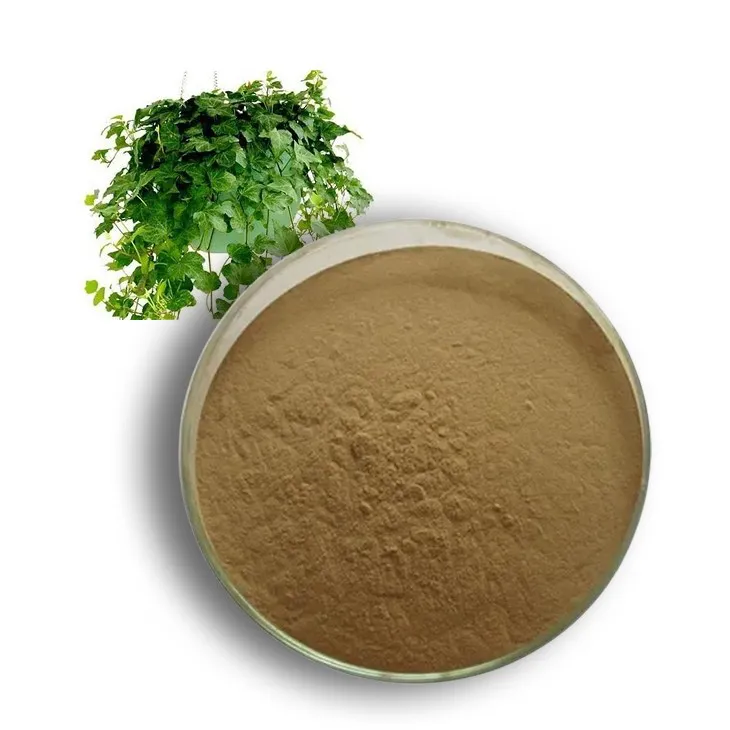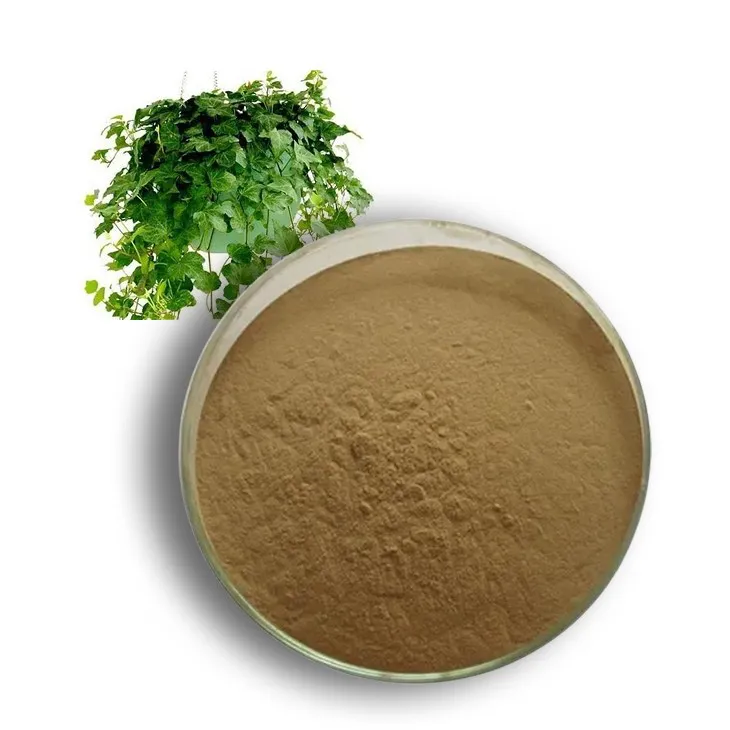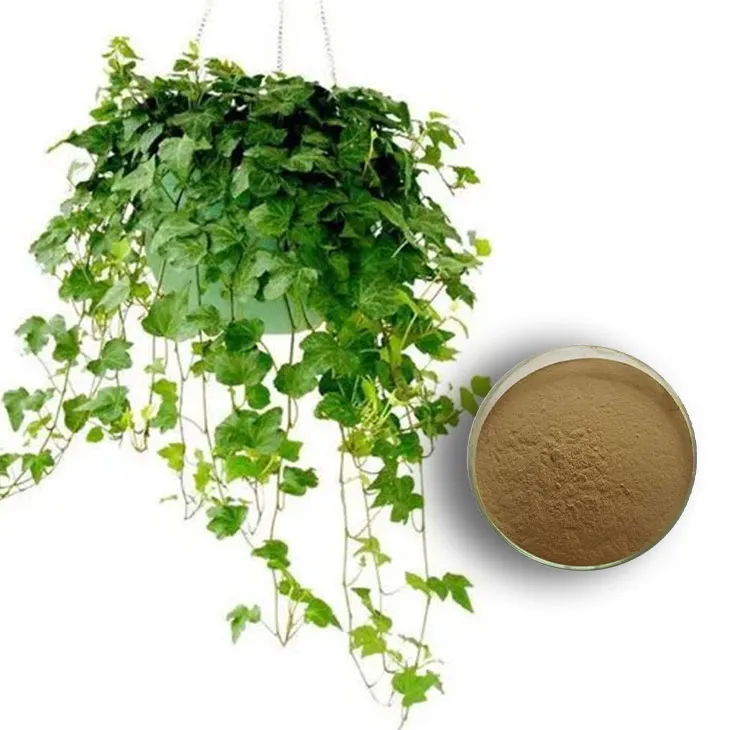- 0086-571-85302990
- sales@greenskybio.com
Mature ivy flavor and natural ivy extract.
2024-11-13

The Allure of Mature Ivy Scent
The mature ivy scent is a remarkable olfactory experience. It is a scent that has the power to transport one to the heart of nature. In the wild, the ivy plant as it matures emits a fragrance that is both earthy and refreshing. This scent is not just a random by - product of the plant's growth but a complex blend of various volatile compounds.
1. The Chemical Composition of the Scent
- The scent of mature ivy contains terpenes, which are known for their pleasant, often woody or resinous aromas. These terpenes contribute to the overall earthy note of the ivy scent.
- There are also aldehydes present in small amounts. Aldehydes can add a certain freshness and crispness to the fragrance, much like the feeling of a cool breeze on a forest floor where ivy grows.
- Esters are another component. They often give a sweet, fruity undertone that balances out the more earthy and woody elements, creating a harmonious and multi - faceted scent profile.
2. The Scent in the Fragrance Industry
-
Perfume Creation
- In the world of perfumery, the mature ivy scent has the potential to be a unique and sought - after note. It can be used as a top note to provide an initial burst of freshness, or as a middle note to add depth and complexity to a fragrance blend.
- When combined with other floral or woody scents, the ivy scent can create a signature fragrance that stands out in the crowded perfume market. For example, when paired with jasmine and sandalwood, it can produce a scent that is both elegant and grounded.
-
Home Fragrances
- For home fragrances such as candles and diffusers, the mature ivy scent can bring the outdoors inside. It can create a calming and relaxing atmosphere, reminiscent of a walk in a forest filled with ivy - covered trees.
- It is also a great alternative to more common scents like lavender or vanilla, offering a more unique and nature - inspired option for those who want to add a touch of the wild to their living spaces.

The Value of Natural Ivy Extract
Natural Ivy Extract is a treasure trove of bioactive substances. Harvested from the ivy plant, it has a wide range of applications in different industries.
1. In Cosmetics
-
Skin Health Promotion
- The Ivy Extract is rich in antioxidants. These antioxidants help to protect the skin from free radical damage, which can cause premature aging, wrinkles, and dull skin.
- It also promotes cell renewal. By stimulating the skin cells to regenerate, it can improve the overall texture and appearance of the skin, making it look smoother and more youthful.
- Some components in the ivy extract have anti - inflammatory properties, which are beneficial for those with sensitive or acne - prone skin. It can reduce redness and inflammation, helping to soothe irritated skin.
-
Hair Care
- In hair care products, the ivy extract can strengthen the hair follicles. This can lead to reduced hair fall and promote healthier hair growth.
- It also has the potential to add shine to the hair. By coating the hair shaft, it can make the hair look lustrous and healthy.
2. In Herbal Remedies
-
Respiratory Health
- The expectorant properties of ivy extract make it useful for treating respiratory problems. It helps to loosen mucus in the lungs and airways, making it easier to cough up and clear the respiratory tract.
- For those suffering from bronchitis or asthma, the ivy extract may provide some relief by reducing inflammation in the airways and improving breathing.
-
Anti - Inflammatory Effects
- Beyond the respiratory system, the anti - inflammatory effects of ivy extract can be beneficial for other conditions as well. For example, it may be used in the treatment of arthritis or other inflammatory joint diseases.
- It can also be applied topically to reduce inflammation in skin conditions such as eczema or psoriasis.

Challenges in Utilizing Ivy - Related Products
1. Sourcing and Sustainability
- One of the main challenges in using mature ivy scent and natural ivy extract is ensuring a sustainable source. Ivy plants are part of the natural ecosystem, and over - harvesting can have a negative impact on the environment.
- There is a need to develop sustainable harvesting methods that allow for the extraction of these valuable products while also protecting the growth and survival of the ivy plants in their natural habitats.
- Another aspect of sourcing is quality control. Since the chemical composition of the ivy scent and the bioactive substances in the extract can vary depending on factors such as the plant's location and growing conditions, it is essential to have strict quality control measures in place to ensure consistent product quality.
2. Regulatory and Safety Concerns
-
Cosmetics
- In the cosmetics industry, there are regulatory requirements regarding the use of natural ingredients like ivy extract. These regulations are in place to ensure the safety of consumers. For example, the concentration of certain substances in the extract must be within safe limits to avoid potential skin irritation or other adverse effects.
- There may also be requirements for proper labeling, including listing all the ingredients and any potential allergens present in the product containing ivy extract.
-
Herbal Remedies
- In the field of herbal remedies, the safety and efficacy of ivy extract need to be thoroughly studied. While it has been used in traditional medicine for certain ailments, modern scientific research is required to validate its claims and ensure that it is safe for use, especially when combined with other medications.
- Regulatory bodies may have specific guidelines for the production and marketing of herbal products containing ivy extract, and manufacturers need to comply with these regulations to ensure the legality and safety of their products.

The Future of Ivy - Based Products
1. Research and Development
- There is a great deal of potential for further research and development in the area of mature ivy scent and natural ivy extract. Scientists can explore new ways to isolate and purify the bioactive substances in the extract for more targeted applications.
- For the ivy scent, research can focus on creating synthetic versions that closely mimic the natural scent while also being more sustainable and cost - effective. This could open up new opportunities in the fragrance industry.
- Research could also be directed towards understanding the long - term effects of using ivy - based products, both in cosmetics and herbal remedies, to ensure their safety and efficacy.
2. Market Trends and Consumer Demand
- As consumers become more interested in natural and sustainable products, the demand for ivy - based products may increase. Consumers are increasingly looking for alternatives to synthetic chemicals in cosmetics and are more open to herbal remedies.
- The unique properties of the mature ivy scent and the benefits of the natural ivy extract could position these products well in the market. However, manufacturers need to be able to effectively communicate these benefits to consumers through proper marketing and product labeling.
- There is also an opportunity for niche market development. For example, high - end perfume brands could target consumers who are looking for exclusive and nature - inspired fragrances, while organic skincare brands could incorporate ivy extract into their product lines to attract consumers interested in natural skin health solutions.
FAQ:
Question 1: What makes the mature ivy scent so appealing?
The mature ivy scent is appealing because it is a complex fragrance. It is a unique smell found in nature that can bring a sense of freshness and mystery. This complexity makes it stand out and potentially be a very interesting addition to the fragrance industry, as it can offer a different olfactory experience compared to more common scents.
Question 2: How is natural ivy extract obtained?
Natural ivy extract is obtained from the ivy plant. Usually, specific parts of the ivy plant are carefully selected, and then through various extraction methods such as solvent extraction or steam distillation, the active substances in the ivy are separated and concentrated to obtain the ivy extract.
Question 3: What bioactive substances are typically found in natural ivy extract?
Natural ivy extract contains a variety of bioactive substances. Some of the common ones include saponins, flavonoids, and tannins. These substances contribute to the various properties of the extract, such as its potential in promoting skin cell renewal in cosmetics and its expectorant properties in herbal remedies.
Question 4: In what ways can natural ivy extract benefit skin health?
Natural ivy extract can benefit skin health mainly by promoting cell renewal. It can stimulate the skin cells to regenerate, which helps in maintaining the skin's elasticity and smoothness. It may also have antioxidant properties that can protect the skin from environmental damage.
Question 5: How does ivy extract help with respiratory problems?
Ivy extract helps with respiratory problems due to its expectorant properties. It can help to thin and loosen mucus in the respiratory tract, making it easier to cough up. This can relieve congestion and improve breathing in cases of coughs, colds, and other respiratory ailments.
Related literature
- The Chemical Composition and Biological Activities of Ivy Extracts"
- "Mature Ivy Scent: A New Perspective in Fragrance Design"
- "Ivy Extract in Cosmetics: Skin Health and Beyond"
- ▶ Hesperidin
- ▶ citrus bioflavonoids
- ▶ plant extract
- ▶ lycopene
- ▶ Diosmin
- ▶ Grape seed extract
- ▶ Sea buckthorn Juice Powder
- ▶ Beetroot powder
- ▶ Hops Extract
- ▶ Artichoke Extract
- ▶ Reishi mushroom extract
- ▶ Astaxanthin
- ▶ Green Tea Extract
- ▶ Curcumin Extract
- ▶ Horse Chestnut Extract
- ▶ Other Problems
- ▶ Boswellia Serrata Extract
- ▶ Resveratrol Extract
- ▶ Marigold Extract
- ▶ Grape Leaf Extract
- ▶ blog3
- ▶ blog4
- ▶ blog5
-
Organic Tongkat Ali extract powder factory.
2024-11-13
-
How to make powder with ashwagandha extract.
2024-11-13
-
Rosehip extract manufacturers from China.
2024-11-13
-
The best cat's claw extract in nature.
2024-11-13
-
Chinese Dandelion Leaf Extract Suppliers.
2024-11-13
-
Tormentil Extract
2024-11-13
-
Citrus bioflavonoids
2024-11-13
-
Horse Chestnut Extract
2024-11-13
-
Cactus Extract
2024-11-13
-
White mustard seed extract
2024-11-13
-
Hericium erinaceus extract powder
2024-11-13
-
Phyllanthus Emblica Extract
2024-11-13
-
Buckthorn bark extract
2024-11-13
-
Nettle leaf extract
2024-11-13
-
Oyster Mushroom Extract Powder
2024-11-13





















